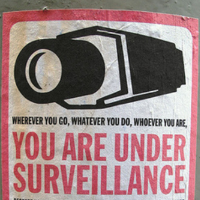Oakland’s Port Surveillance System May Expand to the Entire City

The city of Oakland is poised to expand a 2010 federal Homeland Security data collection program, originally targeted at protecting its port from terrorists, to include ordinary crime in the city itself.
If the city council approves acceptance of a $2 million federal grant at its July 30 meeting, the Domain Awareness Center would look beyond the port for data streams—to schools, the Coliseum, law enforcement agencies, license plate readers, digital license plates, private security cameras, red-light cameras, the Metropolitan Transportation Commission, the state Department of Transportation and others.
Oakland Police Department (OPD) consultant William Bratton, the former police chief in New York and Los Angeles, suggested in his May report that the OPD be allowed to make use of the port surveillance project. The proposal quietly moved forward until it landed on the council’s consent calendar of non-controversial items last week, a place for sure-fire winners in the legislative lightening round.
It was, however, greeted with a burst of skepticism by the public, according to the East Bay Citizen, perhaps best explained by Oakland resident Joshua Daniels. “We’re talking about giving a surveillance system for the entire city over to, perhaps, the most abusive police force in the country,” Daniels said.
The police department has had federal oversight for a decade and been under the control of a court-appointed monitor since the beginning of the year for myriad transgressions. It went through three police chiefs in one week back in May.
American Civil Liberties Union attorney Linda Lye told the Center for Investigative Reporting the center was “a classic illustration of mission creep.” Lee Tien at the Electronic Frontier Foundation told the center, “There's no indication they've considered any privacy or civil liberties issue in the first place.”
Oakland and Long Beach are currently the only cities in California with data awareness centers for their ports, but Los Angeles is building one. The state also has four regional “fusion centers” that are meant to unite local, state and federal anti-terrorism efforts. A U.S. Senate report (pdf) called them an abject failure and said their information is “oftentimes shoddy, rarely timely, sometimes endangering citizens’ civil liberties and Privacy Act protections, occasionally taken from already-published public sources, and more often than not unrelated to terrorism.”
Microsoft partnered with New York City on its Domain Awareness System, “a sophisticated law enforcement technology solution that aggregates and analyzes existing public safety data streams in real-time.”
Local systems like the one in New York and the one proposed in Oakland can tap into surveillance systems already in place and accommodate new ones in the future. They can also facilitate larger federal data gathering enterprises, like those receiving greater attention after the revelations by former government contractor Edward Snowden.
The accumulation of vast amounts of data by governments for ill-defined reasons and indeterminate duration has privacy advocates concerned. So Oakland will take another couple weeks to think about expanding its surveillance system.
–Ken Broder
.
To Learn More:
Oakland Surveillance Center Progresses amid Debate on Privacy, Data Collection (by Ali Winston, Center for Investigative Reporting)
A Proposed Citywide Surveillance Center in Oakland Is Delayed as Opposition Builds (by Steven Tavares, East Bay Citizen)
Around the Bay Area, You're Being Watched (by Josh Richman and Angela Woodall, San Jose Mercury News)
Big Brother in Oakland? There Might be an App Coming for That (by Steven Tavares, East Bay Citizen)
Beleaguered Oakland Police Department Gets Three Chiefs in One Week (by Ken Broder, AllGov California)
- Top Stories
- Controversies
- Where is the Money Going?
- California and the Nation
- Appointments and Resignations
- Unusual News
- Latest News
- California Forbids U.S. Immigration Agents from Pretending to be Police
- California Lawmakers Urged to Strip “Self-Dealing” Tax Board of Its Duties
- Big Oil’s Grip on California
- Santa Cruz Police See Homeland Security Betrayal in Use of Gang Roundup as Cover for Immigration Raid
- Oil Companies Face Deadline to Stop Polluting California Groundwater





